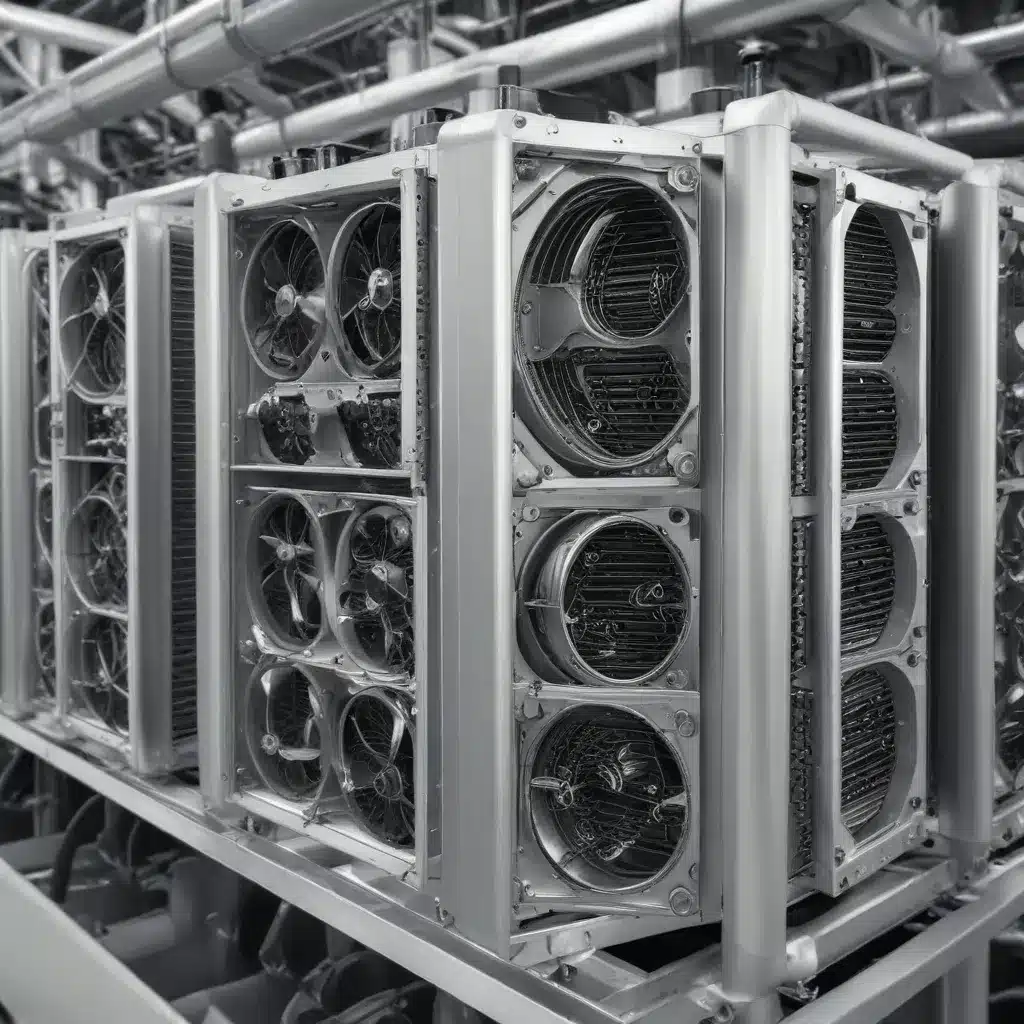
The Rise of Intelligent Thermal Management in the Era of Accelerated Computing
In the rapidly evolving world of advanced computing and data-driven innovation, the demand for efficient, reliable, and scalable thermal engineering solutions has never been more critical. As industries across the globe embrace the transformative power of technologies like artificial intelligence (AI), the role of air-cooled heat exchangers in maintaining optimal system performance and reliability has become increasingly vital.
Navigating the Challenges of Modern Thermal Management
Cutting-edge data centers, AI factories, and energy-intensive industrial processes are pushing the boundaries of traditional cooling systems. These applications require innovative thermal engineering approaches that can accommodate the ever-increasing heat loads, while ensuring consistent and energy-efficient operation. Air-cooled heat exchangers have emerged as a versatile and intelligent solution, capable of meeting the diverse thermal management needs of today’s industrial landscape.
Unlocking the Potential of Air-Cooled Heat Exchanger Technology
Air-cooled heat exchangers have long been a staple in various industries, from power generation and manufacturing to data centers and HVAC systems. However, the latest advancements in materials, design, and control systems have transformed these once-passive components into intelligent, adaptive, and high-performance thermal management solutions.
Advanced Materials and Innovative Designs
The development of new materials and manufacturing techniques has enabled the creation of air-cooled heat exchangers with enhanced thermal efficiency, durability, and customizability. Cutting-edge fin designs, optimized tube configurations, and the incorporation of additive manufacturing have all contributed to significant improvements in heat transfer capabilities, reduced pressure drop, and minimized fouling.
Integrated Monitoring and Control Systems
The integration of advanced sensors, data analytics, and control algorithms has revolutionized the way air-cooled heat exchangers are managed and optimized. Real-time monitoring of critical parameters, such as temperature, pressure, and airflow, allows for proactive maintenance, predictive failure detection, and automated performance optimization. This intelligent thermal engineering approach helps industries maximize the efficiency and reliability of their systems while minimizing downtime and energy consumption.
Addressing the Challenges of Diverse Industrial Applications
Air-cooled heat exchangers have proven their versatility in addressing the unique thermal management requirements of various industries, including:
Data Centers and AI Factories
The explosive growth of data-driven applications, AI, and cloud computing has led to a surge in heat generation within data centers and AI-powered facilities. Air-cooled heat exchangers, integrated with advanced control systems, can efficiently dissipate the high heat loads generated by servers, networking equipment, and AI accelerators, ensuring optimal system performance and energy efficiency.
Power Generation and Energy-Intensive Industries
In sectors like power generation, manufacturing, and chemical processing, air-cooled heat exchangers play a vital role in managing the heat generated by industrial processes, equipment, and waste streams. By leveraging innovative designs and materials, these heat exchangers can withstand harsh operating conditions, minimize downtime, and contribute to overall energy optimization.
Automotive and Transportation
The increasing electrification of the transportation sector has introduced new thermal management challenges. Air-cooled heat exchangers are being utilized to manage the heat generated by electric motors, power electronics, and battery systems, ensuring optimal performance and safety while aiding in the development of more efficient and sustainable vehicles.
Renewable Energy and Sustainable Systems
As the world transitions toward a more sustainable future, air-cooled heat exchangers are playing a crucial role in supporting the growth of renewable energy technologies. These versatile thermal management solutions are enabling efficient cooling and heating systems for solar power plants, geothermal installations, and other clean energy applications.
Optimizing Air-Cooled Heat Exchanger Performance and Maintenance
Maintaining the optimal performance of air-cooled heat exchangers is essential to ensure continuous and reliable operation across diverse industrial settings. Effective maintenance practices, coupled with advanced monitoring and control systems, can unlock the full potential of these intelligent thermal engineering solutions.
Proactive Maintenance Strategies
Regular inspections, preventive maintenance, and predictive analytics can help identify potential issues before they lead to system failures. Strategies like fin cleaning, tube bundle removal, and automated fouling detection can extend the service life of air-cooled heat exchangers, reduce maintenance costs, and minimize unplanned downtime.
Leveraging Data-Driven Insights
Integrating sensors and data analytics into air-cooled heat exchanger systems enables real-time monitoring of key performance indicators, such as temperature, pressure drop, and airflow. By leveraging these insights, operators can optimize operating parameters, identify efficiency improvements, and plan maintenance activities proactively, ensuring the long-term reliability and performance of their thermal management solutions.
Collaborative Partnerships and Industry Expertise
Engaging with experienced air-cooled heat exchanger manufacturers, service providers, and industry experts can unlock additional benefits. These collaborations can help identify the most suitable technologies, implement tailored maintenance programs, and provide ongoing support to address the unique challenges faced in specific industrial applications.
Embracing the Future of Intelligent Thermal Engineering
As the world of advanced computing, AI, and sustainable energy continues to evolve, the role of air-cooled heat exchangers in driving progress and innovation becomes increasingly vital. By embracing the latest advancements in materials, design, and intelligent control systems, industries can unlock the full potential of these versatile thermal management solutions, paving the way for a more efficient, reliable, and sustainable future.
The Air Cooled Heat Exchangers blog is dedicated to providing comprehensive insights, practical guidance, and industry-leading expertise to help organizations navigate the evolving landscape of thermal engineering and optimize their air-cooled heat exchanger performance. Stay ahead of the curve and explore the transformative power of intelligent thermal management solutions.

